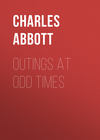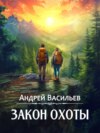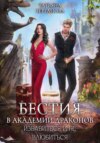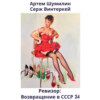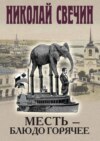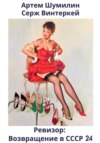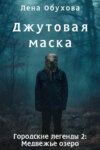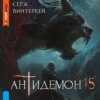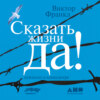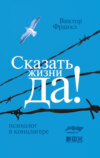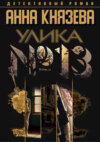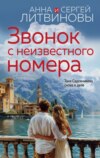Читать книгу: «Outings At Odd Times», страница 2
A Cold Wave
When Mr. Isaac Norris, of Philadelphia, merchant and man of observation, recorded the weather in the vicinity of that city, 1749 and earlier, he did not mention “cold waves,” as such, but remarked that there was greater irregularity then than formerly, adding the significant statement, “at present it is warm, even the very next day after a severe cold, and sometimes the weather changes several times a day.”
Whether since 1749 these sudden changes of temperature have become more frequent or not, I have no satisfactory means of determining, but am inclined to think such to be the case; but new or old as a meteorological freak, a cold wave is worthy of the rambler’s study, in spite of the discomforts sure to be encountered, for it necessarily affects all animal life that was astir before it reached us. Yesterday, there were birds in the woods and about the meadows; even spiders had spread their webs in the sunny glades, and stray flies hummed in the sheltered hollows of the hill; so that thoughts of an early spring came continually to the fore, as I watched and listened to the busy life about me, myself reclining at full length, on a prostrate tree.
Had there been no intimation of the cold wave’s coming in the morning paper, it would have been suspected as on its way, for all day the barometer was suspiciously low, and soon after sunset a faint moaning in the chimney corner and a far shriller sound among the tree-tops suggested a coming change. The sudden up-leaping of sparks, too, from the back-log counts for something. For an hour or more the coals had been red or purple and scarcely a flame, however small, shot from the glowing mass; then, at the whisper of the fretful wind, suddenly long trains of brilliant sparks flew upward, and again, both the back-log and the black fore-sticks were ablaze. Doubtless, in the good old times, this never passed unnoticed and every one ventured a prediction when there was no likelihood of erring. So he who spake first, in the days of our grandfathers, became the greater weather-prophet.
During the night the cold wave came. As I write, we are having the first ice-making weather of the season, although February is well advanced. The chill, gray clouds scarcely concealed the sun as it rose, and later, when the sky was clear, a rosy blush tinted the drifted snow upon the fields. What now of the busy birds, the spiders, and humming flies of yesterday? Have they folded their tents like Arabs and silently disappeared?
Facing the north wind, I pushed through brake and brier, listening at every step for the chirp of a startled bird. For some time I neither saw nor heard a living creature, nor, indeed, did I wonder at their absence. At last a solitary crow struggled against the fierce wind and uttered at times a most melancholy plaint. It was all but sufficient to send me home, and I stood for a moment pitifully undecided; but the crow, I saw, did make some headway, and I took a hint of it. The icy gusts that swept the hillside soon forced me, however, to seek shelter, and I crept for some distance along the bed of a deep dry ditch overhung by blackberry canes and smilax. Here I found a more spring-like temperature, and was not surprised when from the clusters of dead grass blue jays hopped before me. They were evidently startled at my appearance in their snug retreat, but still were not timid, as when in the open woods. I often approached within a few paces, and they hid, I am sure, in the tangled vines and bushes on the banks of the ditch, instead of flying out into the meadow. But if jays, there should be other birds I thought, and I stopped again and again to listen. It was the same old story – nothing was to be heard but the roar of the wind overhead. Weary at last with creeping through such cramped quarters, I sat down to rest at a convenient point, and never have I been so fortunate in the choice of an outlook.
It is clearly evident that our resident birds and mammals soon know every nook and corner of their chosen haunts, and more, that they pass from point to point in accordance with fixed plans and do not wander aimlessly about. If you overtake in broad daylight, as sometimes happens, any animal larger than a mouse, it is not likely to be confused, not knowing which way to turn. Such indecision would invariably prove fatal. Their actions under such circumstances indicate full knowledge of their surroundings, and convince one of this fact. If not true, then every surprised animal must take in at a glance every tree, burrow, ditch, and path, and select between them, in the twinkling of an eye. My own observations lead me to conclude that our mammals, which are largely nocturnal, survey at night the whole country and know every inch of the ground. Every tanglewood is to them a city with its main thoroughfares and side alleys, and it is this knowledge that enables them to outwit their foes. Within a few days, a skunk came boldly into the yard, in broad daylight; defied the dog by assuming a bold front, and was making for the only near place of safety within easy reach, when in the yard, an opening under a side porch. By mere accident only it was run down and killed. This dreaded creature had evidently been belated, and coming home after sunrise used wonderful tactics when it encountered the dog. It played with him. It ran this way and that, but never far, and always faced the half-timid mastiff. It shook its huge tail, bristled its long fur, snapped, squeaked, and all the while approached in short stages the porch. At last, seeing more than an even chance of reaching it, the cunning creature bolted, and I am almost sorry that it did not escape.
So, too, with our birds. Not all of them act upon foreknowledge of a coming cold wave, and temporarily migrate. On the other hand, had they no places of refuge, the majority would perish. No bird could have weathered the cold cutting winds that prevailed last night, with the air, too, at times, filled with stinging sleet. Yet, hunt the country over, after such a night, and how seldom will you find a dead bird lying upon the ground. Even after such a storm as the historic blizzard of a year ago, birds that had succumbed through exposure, were comparatively few. The fact that the alien sparrows in our cities were destroyed in large numbers, strengthens my previous assertion, for they, unlike wild life, are largely deprived of the advantage of snug harbors, such as the country affords our native birds; and their semi-domesticated condition has rendered them less provident and observing. Such, at least, was the tenor of my thoughts while resting in my sheltered outlook.
Before many minutes had elapsed the expected chirping of winter finches was heard; at first in the distance, but directly almost overhead; then, everywhere about me. A moment later, and a dozen were in full view. Myself, a shapeless mass upon a mossy log, the birds mistook me for a part of it, and I had but to look and listen. Foxie sparrows threaded the tangled maze of vine and cane, singing a few sweet notes at times, as the wind lulled and the warm sunshine flooded the shelter with a brighter glow; white-throats warbled in their listless way, and one fearless winter wren peered into every cranny of the hollowed earth, spider-hunting wherever the waters of the last freshet had caverned the overhanging banks. As it drew near, I almost held my breath, hoping it would venture to creep over me. Once it came very near, stopped and looked me squarely in the face, but without its suspicions being aroused. Probably I needed but a few cobwebs to have brought it even closer.
For long the light-hearted birds, in joyous mood, passed up and down this hidden highway, often within arm’s reach, and not one recognized me. It was much like being alone in a strange city, where the feeling of desolate isolation can best be realized. Much as I might desire it, I could in no sense become a part of the happy world about me. Here, at times, is the shadow that rests upon the rambler’s path – to feel that at best he is but tolerated, and to know that had these happy creatures the power they would drive him into the bleak world beyond.
One interesting feature of bird life was to-day very apparent. Never did two or more individuals meet upon the same twig but a low, scarcely audible twitter was uttered. I could often see a slight movement of the beak, without hearing a sound, and notice a gentle tremor of the wings, that doubtless meant much to them, but can not be interpreted by us. Then away they would go, following the line of the long ditch without grazing the tiniest twig that bent above them. Why many a sparrow, apparently in reckless haste, did not come to grief, is indeed a puzzle; for never, I thought, had I found thorns so sharp, so slender, and so thickly set.
But not birds alone had sought shelter here; the mice also had been driven from the wind-swept meadows, and these ventured into the sunlight, but were cautious to a marked degree. None came very near, and when I was in full view they stopped, sat upon their haunches and felt sure, if I correctly read their thoughts, that all was not quite right. Not one passed by me. Their keen noses detected what the proverbially keen sight of the birds had failed to discover, that I was not a harmless bit of driftwood. Or did the sense of hearing catch the sound of my breathing? Explain it as one may, meadow-mice were never before so knowing, and I recall the charge that I have often made, that they are stupid.
So here I sat for two whole hours, yet not aware that so long a time had elapsed. It mattered nothing that the fierce wind raged above me; that the bending oaks echoed its heartless boast:
“I come from the fields of the frozen north,
O’er the waste of the trackless sea,
Where the winter sun looks wearily forth,
And yieldeth his strength to me.”
This lessened not my comfort nor quickened my homeward steps. Wrapping my cloak the closer, I recalled the day’s adventures as I withdrew, thinking how true it was that pleasant surprises are ever in store for the earnest rambler and many a loss for him who is faint-hearted. It is not well to judge the world through a window.
The Woods in Winter
When I walk in the woods in summer I think of the trees as a shelter. They go to form a protection alike against the sun and passing shower. And if I turn from the old cart-path it is but to enter some one-side compartment of a great labyrinth of rooms. No one tree calls for observation. They are as the inner walls of a great house, and what they surround alone commands attention. It is going out of doors as much to leave the thick woods as to pass from your dwelling. But now, during December’s bright, cheery, winter days, every tree in these same woods becomes my companion. We are exposed to the same sunny sky, and as I wander from one to another, each has its pleasant greeting for me. This has been a life-long fancy of mine. Walk up to a century-old oak, and how promptly it speaks to you of giant strength and sturdy independence; turn then to a stately liquidambar and you are greeted with exquisite grace. I can point out in the old woods here at home the counterparts of many a man I know. The lonely wild apple on a gravelly knoll is as crabbed as my crusty neighbor who begrudges me a few flint arrow-heads. I think I should be soured by wandering half a day in a forest of wild-apple trees. There is no such feeling when with the oaks, beeches, chestnuts, and silver birch. They recall no unfortunates among one’s acquaintance. Every tree of them is content with the world as it finds it, and so too am I when surrounded by them.
The woods were quiet when I entered. Not a twig trembled, and the dead leaves were too limp to crackle beneath my feet. Dainty frost crystals were plentifully strown over the dwarfed bushes by the roadside, and a film of glittering ice with jagged sides reached out from the banks of a little brook near by. Nowhere did the ice reach wholly across the stream, and so was the more beautiful by reason of the inky waters that flowed sluggishly beneath it.
Where, about the roots of a massive beech, the brook had become a little pool, I stood for many minutes, alternately watching the waters that here seemed roused to a semblance of activity, and then listening to the welcome cawing of the over-flying crows. Brooks, birds, and trees! Your choice of such good company, and yet there are those who would have gone mad here from loneliness! For the time I gave heed to the brook, wondering as usual what might be beneath the surface, and all the while, as ever happens, the creatures of the brook were wondering about myself. If one turns to the text-books he will find much said of the instinct that leads the lower forms of life to seek a safe shelter as winter approaches. The lower forms of life in this brook had no such intention. First, I detected dainty little frogs – the peeping hylodes – squatted on dead leaves and yellow pebbles, and so spotted, splotched, and wrinkled were they that it took sharp eyes to find them. Their idea of a shelter in winter is from enemies, and not from the frosty air; a little warmer sunshine to-day would have moved them to sing. Time and again during November they rattled and “peeped” almost as shrilly as ever in April, and they will again, if we are treated to a green Christmas.
The spirit of exploration seized me now, and I brushed the shallow waters with a cedar branch. Lazy mud minnows were whipped from their retreats, and a beautiful red salamander that I sent whizzing through the air wriggled among the brown leaves upon the ground. It was only after a hard chase that I captured it, and, holding it in my hand until rested, I endeavored to induce it to squeak, for it is one of a very few that has a voice; but it was not to be coaxed. It suffered many indignities in silence, and so shamed me by its patience that I gently placed it in the brook. Soon, black, shining whirligigs – the gyrinus – suddenly appeared, and a turtle, as if wondering what might be the cause of the commotion, thrust its head in the air, stared angrily at me, and returned to its hidden home. There was no dearth of life in the brook, yet this is a winter day. The ground is frozen, and the rattle of wagons upon the highway penetrates even to this remote recess in the deep woods.
As a child soon tires of one toy, so I longed, after an hour’s play, for a new field and other forms of life, and so much for serious study as that I might vary my amusement; but let not this apparent aimlessness be held unworthy of the rambler. Call it play, if you choose, but the incidents of such a day come back in bold relief when, with or without an effort, they are recalled. I have found it most fortunate that unconscious cerebation is so active when I wander about, toying, as here by the forest brook, with many forms of life. More than half the acts of every creature I meet are apparently meaningless at the moment of their occurrence, but their full significance is evident when in thought I wander a second time over the same ground. Scarcely regarded incidents come well to the fore and throw a flood of light upon what lacked at the time any evidence, on the creature’s part, of complicated thought.
Herein, I think, lies the secret of so much disappointment when some people – and they are many – wander in the fields. Filled with enthusiastic desire upon laying down the teeming pages of Thoreau and Burroughs, they expect to see with another’s eyes and appreciate with another’s brain. They see a bird, a mammal, or a host of butterflies, and then ask themselves upon the spot, Well! what of them? The bare fact of their presence is all that the minds of inexperienced ramblers encompass. The wild life they have met excites a passing thrill and they give no further heed to it. And it never occurs to many to recall the incidents. Being a bit disappointed then, why give heed to the subject later? On the contrary, if at the close of the day, in the hills and hollows of the blazing wood upon the andirons, if the walk was in winter, we picture the scenes of the recent ramble, these same birds or mammals, or whatsoever else we saw, will be seen again in a new light. Why those birds and not others were where we found them; why the field-mice or rabbits or a weasel were where we saw them or it, will become evident. The various features of every visited spot will be remembered; and the cheery blaze upon the hearth tells us, as it were, the story that could not be read when facing Nature’s open page. Some of us inveterate ramblers read more than others, when in the fields, but no one can afford to trust to this alone. To extract the whole truth, the past must be recalled again and again.
As I whiled away the time with the tenants of the brook, so I gave heed to every passing bird, and what a strange panorama, as one kind after another flitted by! The happy association of woods and water here, as it attracted me, drew them to the spot, yet no one loitered long. The busy brown tree-creeper traced the crannies of the wrinkled oaks; the nuthatches followed, and their complaining squeaks seemed expressive of disappointment that so little food was to be found. Was this true? Were these little birds really complaining? It certainly seemed so. But how treacherous is this impression of seeming so! Too often, I fear, the rambler is content with it and goes his way convinced that what was vaguely apparent was the truth, the whole truth, and nothing more nor less. I hold it probably true that if every bird which found itself too late was disposed to complain, there would be a vast deal more quarreling than actually occurs. How little contention there is in the bird-world! While it is true that birds of a feather flock together, it is equally so that widely different species also amicably associate, and flagrant is the act that calls for punishment. Better luck next time is the homely proverb that actuates all non-predatorial bird life.
But the merit of birds is their suggestiveness. Promptly following the nuthatches came the ever-welcome song-sparrow. It hopped, with springtide liveliness, among the dead leaves near the brook, and then, flying to a hazel bush near by, it sang that sweet song that not even the mocking-bird ventures to repeat. The woods vanished, and the old garden with its gooseberry hedge was before me. I was a wondering child again, listening and looking at the happy bird, happy as itself.
It is December, the day is cold, the trees are leafless, the ground frozen; but not a thought of all this had clouded my joy for half a day. There is the elixir of perpetual summer even in the woods in winter, and happy is he who can find it.
Old Almanacs
It is a dilapidated outbuilding now, and the merest ghost of its former self. Scarcely one of the many marked features of the old kitchen is left. The cavernous fireplace, the corner cupboard, the narrow box staircase, the heavy double doors, with their long strap hinges, the long narrow table by the south windows, have all been removed. And sad, too, to think that, one by one, the sturdy farmer folk that lived in and loved this now dark and dingy room have all passed away. For me, it is the Mecca to which I most fondly turn when indulging in retrospection. In and about it were passed many of those peculiarly happy days, the recollection of which grows brighter as the years roll by. From late autumn until spring, when for five months the nights were long, this kitchen was the favorite rendezvous, and conversation, rather than reading, the popular amusement. Not that there were no books in the house. There were fifty volumes, at least, in the old book-case, but I can not recall one in the hands of a reader. There are many of them now on my own shelves – Gibbon, Johnson, Goldsmith, Burns, and the journal of many a Quaker of colonial times. It would be unfair to say that books were unpopular, but rather that conversation was held in higher esteem. Then, certainly, every neighborhood had its characters, and their like has not been transmitted to the present generation. I saw the last of a native folk who had occupied my neighborhood since 1680. Now a new people, and as different as black from white, occupy the land; but during my early childhood, my grandfather’s help, like himself, had always lived in the neighborhood. They had been boys together, and little wonder that, when a day’s work was done, the evening should have been spent in reminiscent talk. The farmer was not off to his book at candle-light, and the “hands” left to their thoughts.
How glad, now, am I, that I caught, even in early youth, a glimpse of simpler times! In one way, however, the world has not changed; conversation continually turned upon the weather, and there was one book to which reference was often made and quite frequently consulted – the almanac. How plainly I can see my grandfather adjust his heavy-rimmed spectacles and turn to the record of the current month! “Yes, thee is right, Abijah; the moon changes in the forenoon.” Then the thin pamphlet was hung again in its place in the chimney corner. Hard-headed and alertly observant as were the farmers of fifty years ago, they all deferred to the almanac’s dictum. Men might say, perhaps, what they pleased; but if he who could write an almanac ventured to predict, who were they to dispute it? So they thought, and if snow had been foretold for the Fourth of July, they would have explained the reason why it did not come, and pity, not scorn, the prophet.
I do not know when the first almanac was hung in the chimney corner, but the custom, once started, continued to the end, and when the kitchen was dismantled, a great pile of “Poor Richards” were brought to light from a dark hole in the cavernous corner cupboard. The wisdom crowded upon those torn and tattered pages seems to have been lost, and the later generations were content, if I do not misunderstand them, with the commonplaces and predictions to which reference has been made. But with all their unquestioning reliance upon the almanac, the men who were daily out of doors were prophets unto themselves, and proud of the petty discoveries they claimed to have made. This it was that spiced their conversation and made the meeting of two or three in a cozy kitchen an attractive occurrence to young ears. I do not wonder that books were ignored, when every laboring man laid claim to peculiar knowledge, and, of course, formulated weather proverbs, the like of which have never got into print. For while the neighborhood had, like all others, its common stock of accepted “sayings,” not a man for miles around but had some two or three that he had framed for his own guidance. Every discussion teemed with “according to Joshua,” or “Jeremiah’s saying is,” but every man was largely a follower of himself. Looking backward, and studying my grandfather’s “help,” and even my farmer neighbors, I see, in the light of the present, that these men were both ignorant and wise; having a rich store of facts from which they drew illogical deductions.
Apropos of this, let me add that of a series of sixteen newspaper clippings, from papers published in October and November, 1889, fifteen of them were predictions of a winter of unusual severity in the Middle States. The one that maintained the coming of a mild winter gave no reasons for such a conclusion, but stated very briefly that “certain never-failing signs pointed that way.” It is a pity that such signs were not generally known, now that the “ground-goose, hog-bone” theory has proved unreliable.
And so it was, a year earlier. During the autumn of 1888, I gathered, by the aid of several friends, a considerable number of newspaper clippings concerning the character of the coming winter. Most of them predicted a very severe season and a late spring; a few were somewhat more moderate in the use of superlatives, and one long essay on the breast-bone of the goose made me shiver to read, although the day was warm, and in spite of the assurance that each of the “phenomenally cold periods” would be alternated by “spells of fall-like weather.” Not one hit the nail upon the head and foretold that December and January would be winter with winter left out. And only to-day (January 31) I find in a local paper that the musk-rats are stopping up the entrances to their homes, and February will be very cold. Perhaps! On the other hand, I have just received Volume I of the Geological Survey of New Jersey, in which is a most interesting chapter on the climate of this State. Looking over a tabulated statement of the weather, as characteristic of seasons, I find that we have had six notably mild winters in the past forty years, that of ’81-’82 being “one of the warmest on record.” Armed with these facts, I hunted up our oldest neighbor, Zephaniah Blank, and plied him with questions. Of course, as I intended, the conversation turned upon the weather, as it usually does, and he was very positive that we had had no such winter as the present for “nigh on to thirty years.” The old gentleman could recollect the moderately warm winter of ’57-’58, but that of ’81-’82 had passed from his mind. Had a reporter overheard our talk upon the subject, the local paper would doubtless have recorded the present as the warmest winter in thirty years, which is not the fact. Besides, we are not yet out of the woods, for February is often very cold, and March, to put the best face upon it, exceedingly tricky. Considering that weather is the most talked-of of subjects, is it not strange that upon no other is so much ignorance displayed?
It has been said that every man is a fool or a physician at forty. Whether true or not, every sexagenarian hereabouts is a weather prophet, and their combined wisdom is, as might be seen, valueless. Every one of these worthy men, as such, is a delusion and a snare, but all have faithful followers. Uncle Zephaniah, for instance, was very impatient, to express it mildly, when I spoke of the winter of 1881-’82. The curl of his lip, the glitter of his eyes and wave of his hand, when he remarked, “As if I didn’t know!” spoke volumes. Yet, in spite of his eighty years, he did not know. There is still another feature of weather wisdom, if I can call it such, that is even more remarkable – the proneness to forget the character of a season so soon after it has passed. It may be hard to believe, but many a person will stop to think when the question is put whether the great March blizzard was last year or the year before. Unless such a storm is coupled with some political event or a great disaster, as fire or shipwreck, it passes almost directly out of mind, and its magnitude dwindles in comparison to some lesser event with which the world’s history was connected. And the moral of all this is: keep a diary, swear only by it, and give nothing more than a respectful hearing to unlettered historians and weather prophets.
But if the people have changed, the country has not; and from the same woodland almanac from which they drew their facts we can draw ours. Can any one read it aright? Verily, is not Nature a tricksy author? There are the flowers that many a town dweller thinks truly report the seasons. Pshaw! Away up in Massachusetts, Bradford Torrey found over seventy plants in bloom during a November afternoon; and full well I know of a meadow where violets, bluets, dandelions, and blue-curl can be gathered, even at Christmas, and all the year round, when we have, as now (1889-’90) a typical open winter.
What of the birds? For of these and blossoms is a naturalist’s year made up. The woodland almanac goes for little so far as they are concerned – unless, indeed, you have a trained ear for varying twitters. Bird music is never lacking, and I have long held it an open question if we may not spare the thrush, when there are foxy-sparrows among the briers. So far as weather is concerned, we can not build upon our birds, and no one of our seasons lacks them. It is the whim of closet ornithologists and petty critics to assert that winter is comparatively birdless, but even this is not true. There are not so many species, but often quite as many individuals, and oftener more. Birdless, indeed! Redbirds, meadow-larks, song-sparrows, and blue jays at this moment are making merry in my garden. Notwithstanding all this, there will always be those who will strive to the end to decipher the woodland almanac, and where is he who claims not to have solved its meaning? It were well if every one spelled over a few pages of it every day. It is healthy exercise, fitting one to duties of all kinds, and never tending to sour the temper of a sane person if, at the close of threescore years and ten, he finds that he is sure of but the first lesson – there are four seasons. Weather wisdom, as we all know, meets us at every turn, and while usually irritating, occasionally proves a source of amusement. Some such experience as the following, may have been the fate of many more than I suppose.
John Blank is one of those unfortunates who desire to be thought a genius. To float with the current is beneath his dignity. Uz Gaunt described him well as one who persists in looking toward the west to see the sun rise. Knowing my love for the open fields, this would-be genius has kindly treated me, of late, to innumerable accounts of recent observations of beasts, birds, reptiles, and wild life’s less noble forms, and certainly the man has remarkable powers in one direction – he can misinterpret admirably. “Think of it!” he exclaimed excitedly; “here it is December, and I have heard a frog croak! It was not a springtime croak, of course, but a cry of pain, and I believe a musk-rat dug it out of its winter quarters, and the sound I heard was a cry of pain.” It is a wonder that he did not hear the musk-rat’s chuckle over a good dinner, also. Here we have three assumptions – that frogs never sing in winter; that they habitually hibernate; and that musk-rats dig them out of the mud. The aforesaid John Blank had lived forty-odd years on a farm, and did not know that frogs voluntarily sang or croaked during mild winter days. Like many another, finding that it is cold in December, he turns his back on winter sunshine.

